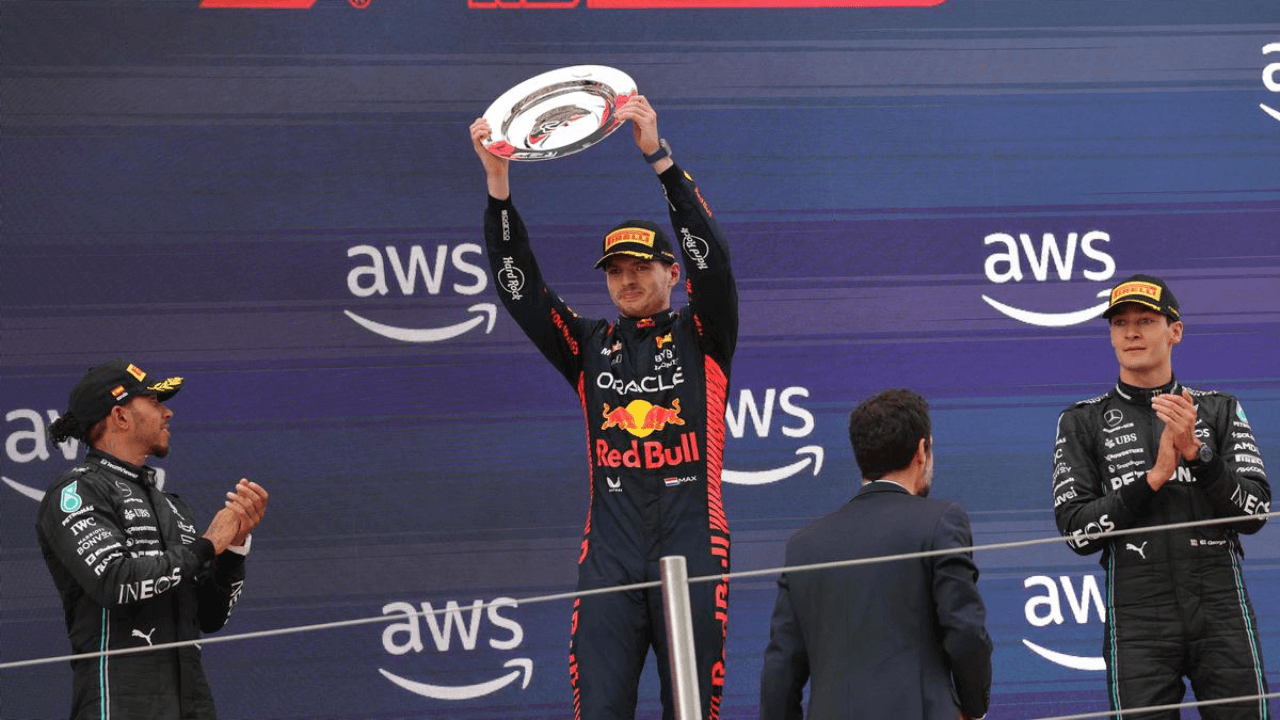F1 Results Spanish Grand Prix
Max Verstappen achieved a remarkable victory at the F1 Spanish Grand Prix, securing the pole position and further extending his lead in the Formula One championship by 53 points. Red Bull’s exceptional performance persisted, as they celebrated their seventh consecutive triumph of the season.
About F1 Spanish Grand Prix
- The Spanish Grand Prix is an annual Formula One (F1) race held at the Circuit de Barcelona-Catalunya in Montmelo, near Barcelona, Spain.
- It is one of the oldest races in the F1 calendar, with the inaugural race taking place in 1951.
- The Circuit de Barcelona-Catalunya is known for its challenging layout, featuring a combination of high-speed and slow-speed corners, as well as long straights.
- The track provides a good test of a car’s performance and handling characteristics, making it a favorite among drivers and teams for pre-season testing.
- The Spanish Grand Prix has seen several iconic moments and memorable races over the years.
- It has been a stage for intense battles between rival teams and drivers, with numerous overtaking maneuvers and strategic battles on display.
- The race attracts a large crowd of passionate fans, creating a vibrant atmosphere throughout the weekend.
- Spectators have the opportunity to witness the world’s top drivers and teams competing at high speeds, showcasing their skills and pushing the limits of their machines.
- The Spanish Grand Prix is an important event in the F1 calendar, often serving as a key race in the early stages of the championship.
- It provides teams and drivers with crucial points and insights into their competitiveness for the rest of the season.
- Over the years, the Spanish Grand Prix has witnessed the triumph of many legendary drivers and teams, adding to the rich history of the race.
- It continues to captivate motorsport enthusiasts worldwide with its blend of speed, strategy, and on-track action.
F1 Spanish Grand Prix 2023
- Lewis Hamilton, a seven-time world champion, secured the second spot for Mercedes, but he trailed a significant 24.090 seconds behind Verstappen’s impressive performance.
- Hamilton’s teammate, George Russell, achieved a podium finish, adding to the success of the Mercedes team at Barcelona’s Circuit de Catalunya under cloudy yet dry conditions.
- Sergio Perez, Verstappen’s teammate and closest contender in the championship, showcased his resilience by fighting back from an 11th-place start to secure the fourth position.
- Verstappen’s triumph in the Spanish Grand Prix marked several milestones, including his fifth win of the season, his third consecutive victory, and his third overall victory in Spain.
- Furthermore, it was his 40th Formula One win, highlighting his exceptional track record in the sport.
Last weekend, Max Verstappen also won the F1 Monaco Grand Prix 2023.
- 3 August Current Affairs 2023 in English
- MoU Between Subroto Mukerjee Sports and Education Society and All India Football Federation (AIFF) to Promote Football at Grassroot Level
- Dr. Mansukh Mandaviya Delivers Keynote Address at the 13th Indian Organ Donation Day ceremony
- Education Ministry Forms Expert Panel on Anti-Discrimination in Higher Education
- Concerns Arise Over Cheetah Deaths at Kuno National Park
FAQs
Who got the fastest lap in the F1 Spanish Grand Prix 2023?
Max Verstappen set the fastest lap of the 2023 Spanish Grand Prix with a time of 1:19.163. He set the lap on lap 56, on a set of soft tires. The lap was 0.153 seconds faster than the previous lap record, which was set by Charles Leclerc in 2022.
How many Grand Prix are there in an F1 Championship?
The number of Grands Prix in an F1 championship has varied over the years. The 2022 season had 22 races, while the 2023 season will have 23. The FIA, the governing body of Formula 1, has said that it wants to increase the number of races to 24 in the future.
The number of races in a season is determined by a number of factors, including the availability of circuits, the commercial interests of the teams and the FIA, and the logistical challenges of organizing a large number of races.
The number of races in a season is determined by a number of factors, including the availability of circuits, the commercial interests of the teams and the FIA, and the logistical challenges of organizing a large number of races.
